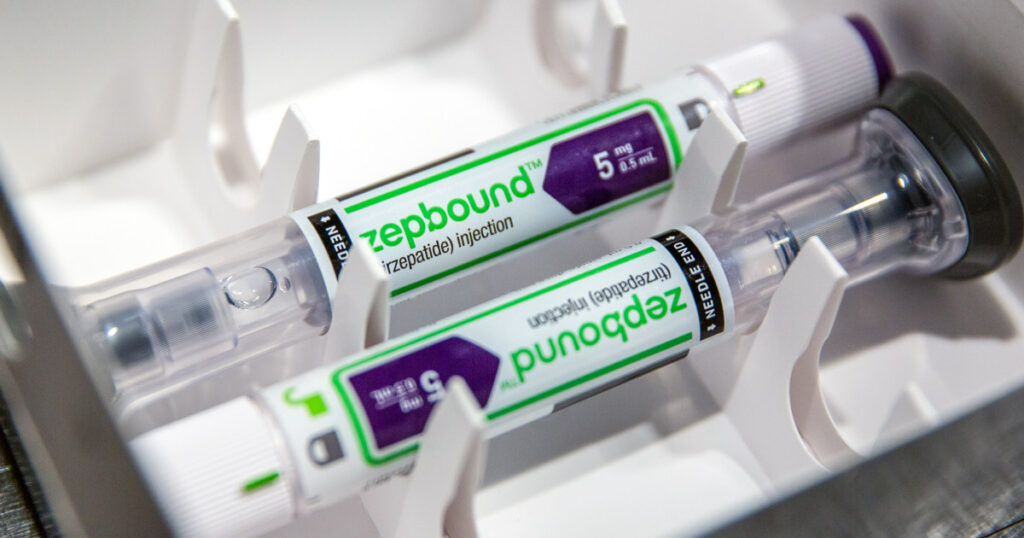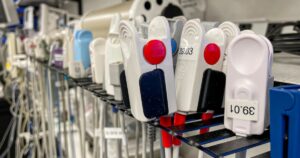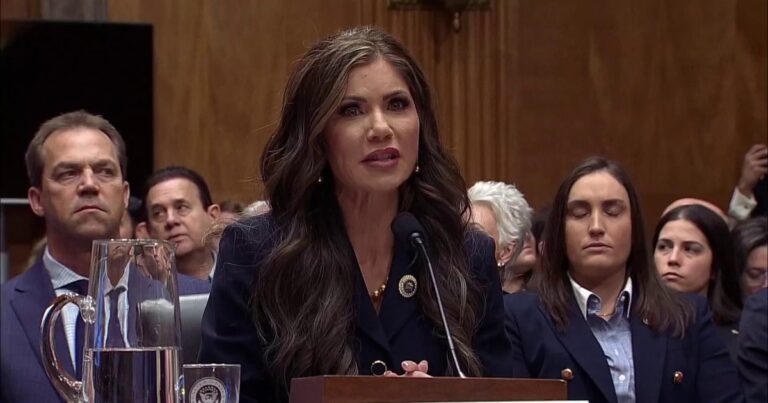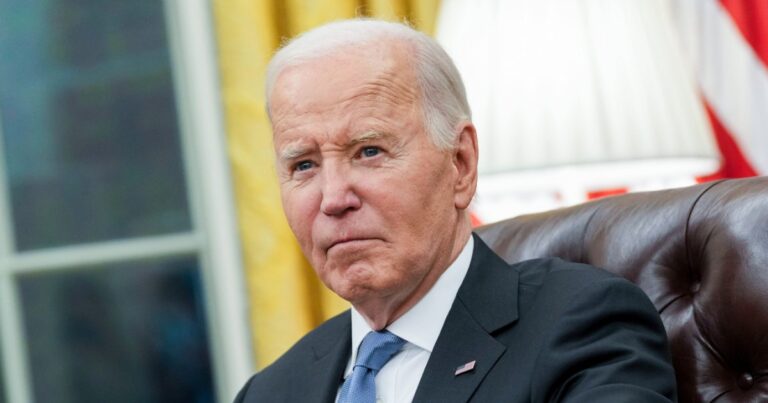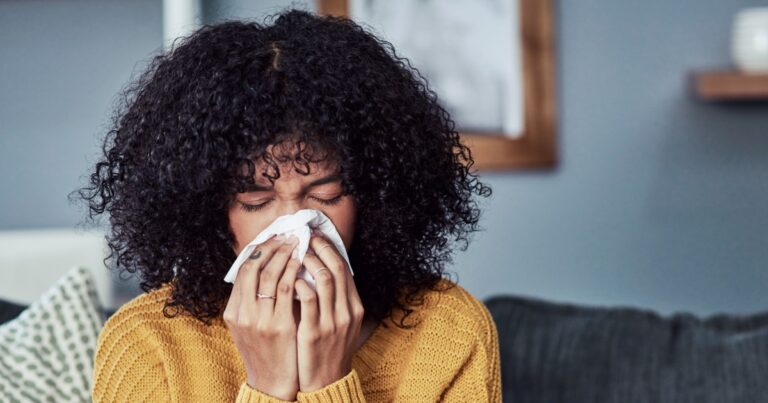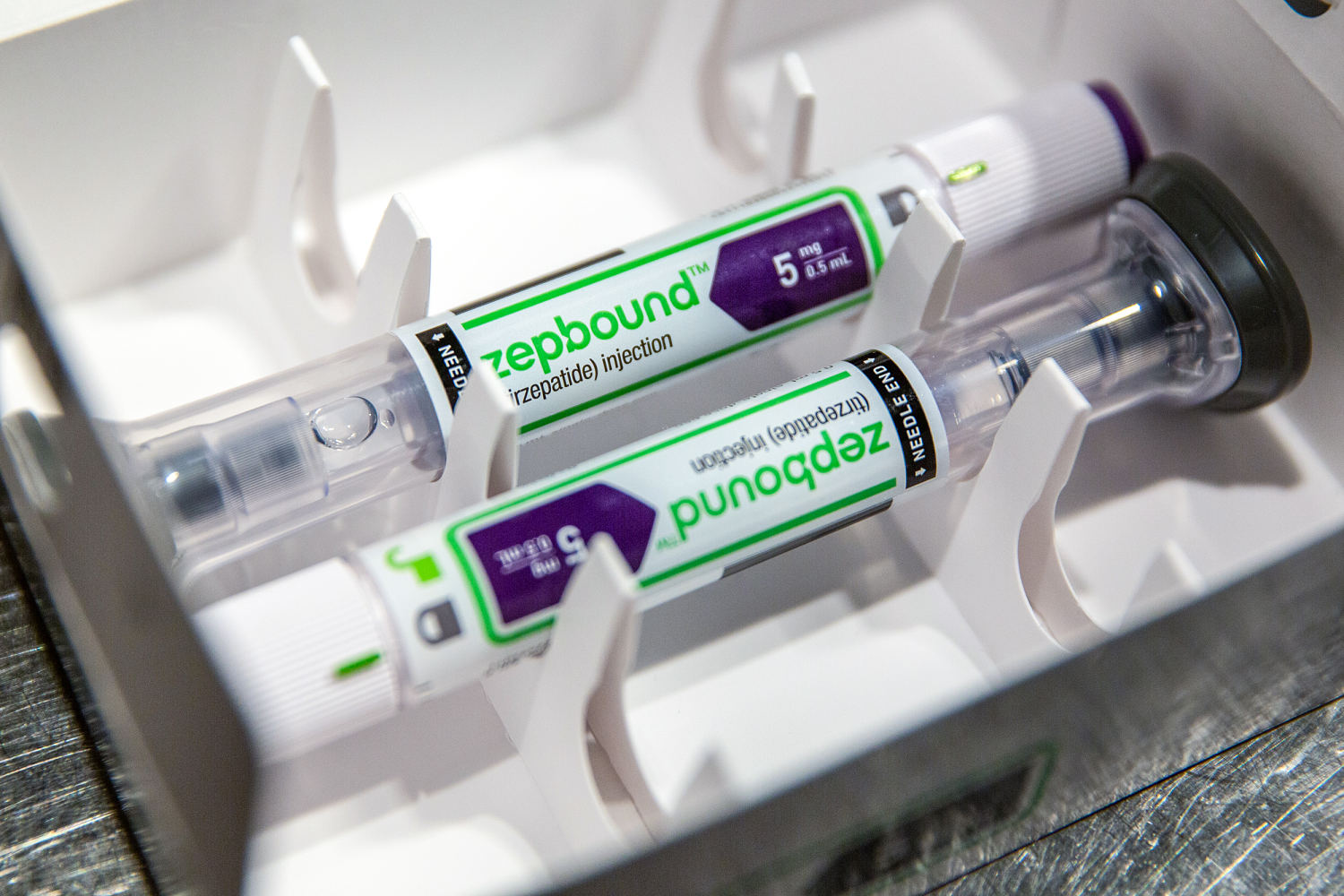
The Food and Drug Administration expanded the approval of weight loss drug Zepbound to treat obstructive sleep apnea in adults with obesity, the drugmaker Eli Lilly said Friday. The decision makes it the first drug treatment for the disorder, which affects about 39 million adults in the United States.
Zepbound, which shares the same active ingredient as Lilly’s diabetes drug Mounjaro, is already approved by the FDA to treat adults who are overweight or have obesity.
The expanded approval could persuade more insurance companies — which have been reluctant to cover the expensive weight loss drugs — to pay for the medication.
“Too often, OSA [obstructive sleep apnea] is brushed off as ‘just snoring’ — but it’s far more than that,” Julie Flygare, president and CEO of Project Sleep, a nonprofit group that raises awareness of sleep health, said in a statement.
Obstructive sleep apnea occurs when the upper airway becomes blocked during sleep, cutting off airflow throughout the night. Often a person is jolted awake gasping for oxygen, contributing to fragmented, poor sleep. Obesity, which can narrow the airway, is one of the leading contributors to sleep apnea. Left untreated, it can lead to diabetes, heart arrhythmias, heart failure, stroke and brain damage.
A study of more than 4,000 people presented at the American Academy of Neurology’s annual meeting in April found people with sleep apnea may also be more likely to have memory or thinking problems.
The approval supports evidence that GLP-1 drugs improve overall health along with weight loss. In March, the FDA approved Wegovy, from Novo Nordisk, to reduce heart disease risk. Other studies are underway to determine whether GLP-1s can help prevent Alzheimer’s, curb addiction and delay kidney disease.
It is unclear how Zepbound helps people with sleep apnea — whether it is through weight loss or because tirzepatide, its active ingredient, is doing something else in the body. The approval is based on two trials of men and women with obesity and moderate to severe sleep apnea.
In Lilly’s sleep apnea research, people who took Zepbound lost around 20% of their body weight on average.
Dr. Susan Spratt, an endocrinologist and senior medical director for the Population Health Management Office at Duke Health in North Carolina, said that when people with sleep apnea lose weight, their symptoms generally improve.
“But as we’ve seen, weight loss without medication is hard to do,” Spratt said.
Other sleep apnea treatments
Many people who have sleep apnea go undiagnosed and untreated.
Currently, obstructive sleep apnea is managed with PAP, or positive airway pressure, machines, which gently blow air into the airway to keep it from collapsing. CPAP, or continuous positive airway pressure, is the most commonly prescribed form of PAP.
Dr. Timothy Morgenthaler, a pulmonologist and sleep medicine specialist at the Mayo Clinic, noted that CPAP machines work quickly, have few health complications and are usually inexpensive.
Over the last few years, however, patients have been frustrated after a major CPAP manufacturer, Phillips Respironics, recalled millions of its machines in 2021 after it found that its noise-canceling foam could break down and be inhaled.
Some patients do not tolerate CPAP machines well, Morgenthaler said, leading them to explore alternatives, such as surgery, which is costly, or oral devices, which are not as effective as CPAP.
That has left room for growing interest in drug options, like GLP-1s, he said.
A weekly injectable like Zepbound could free people from an inconvenient machine — or be used in combination for more effective treatment.
“Weight loss alone can significantly reduce OSA severity for many patients, though tirzepatide may have other mechanisms that could be beneficial,” Morgenthaler said. “However, challenges include its high cost, side effects and the need for long-term management plans, which are still being studied.”
How well does Zepbound work for sleep apnea?
Lilly researchers looked at whether Zepbound worked better than a placebo in reducing how many times per hour, on average, a person partly or fully stopped breathing during sleep. PAP machines were not used in the first study, but they were used in the second.
After 52 weeks, the drug had led to an average reduction of 25 events per hour in people who were not on PAP machines, compared with a reduction of five events per hour for people on the placebo.
In people who did use PAP machines, Zepbound led to an average reduction of 29 events per hour, compared with an average reduction of six events per hour for the placebo group.
After one year, 42% of adults on Zepbound and 50% of adults on Zepbound with PAP therapy experienced remission or reduced symptoms, according to Lilly.
The approval is an “incredible step forward,” Spratt said, although determining whether Zepbound is superior to PAP would require a head-to-head trial.
“The risk of sleep apnea increases with weight gain,” she said.
Morgenthaler said other treatments are still needed, noting that 30% to 40% of sleep apnea patients suffer from insomnia, as well, and that opening the airway alone does not provide relief.
“We need to realize that treating OSA is not simply about keeping the airway open during sleep,” he said.

